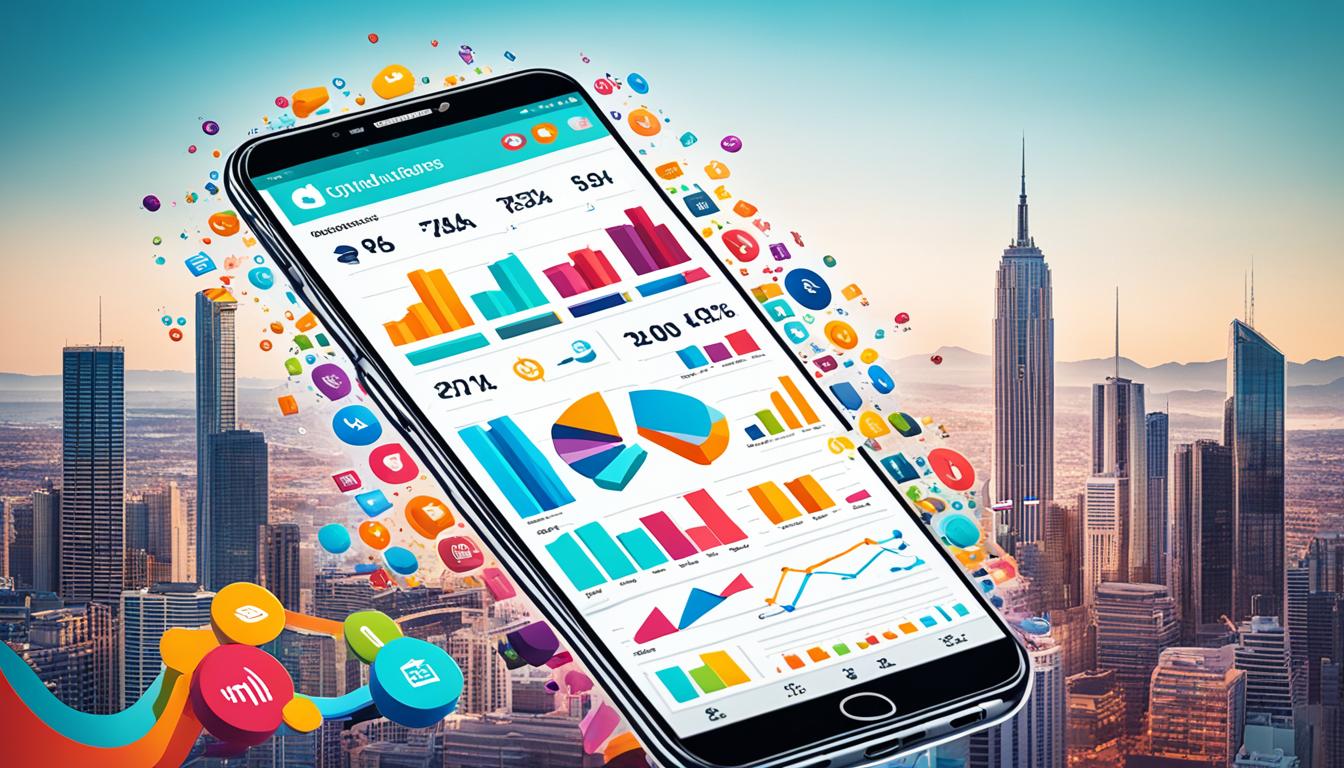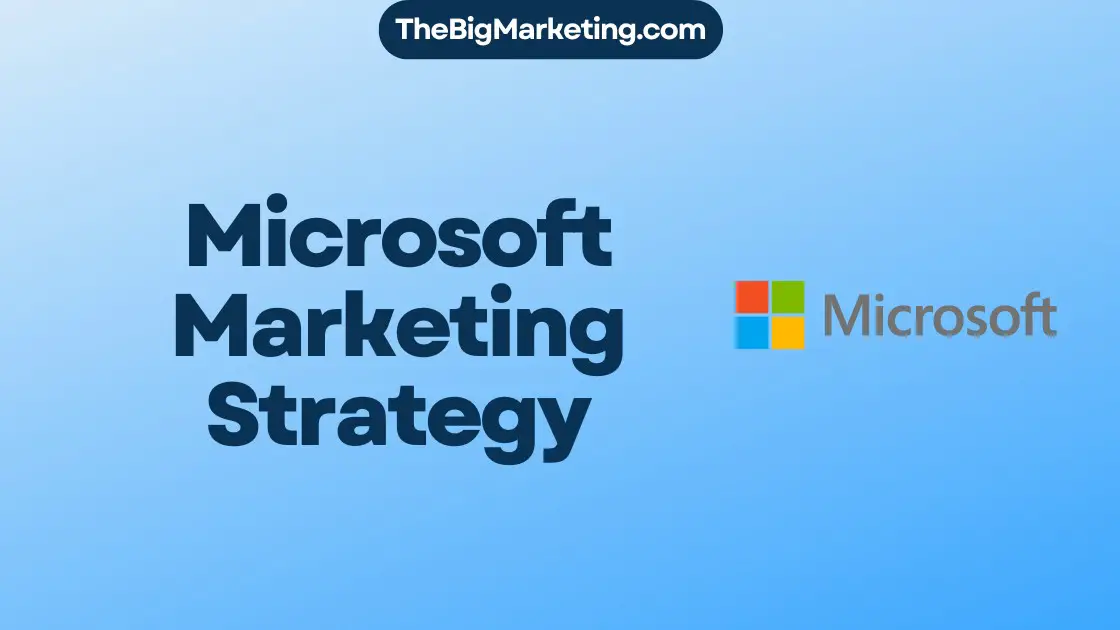Finding the right marketing strategies for B2B startups is crucial for their growth and success. In 2024, it is essential for B2B startups to adopt effective marketing strategies that can help them stand out in the competitive marketplace. With the ever-evolving digital landscape, B2B startups need to leverage various tactics to drive growth and generate leads. Let’s explore some key marketing strategies that can fuel the success of B2B startups in 2024.
First and foremost, digital marketing is a vital component for B2B startup success. Leveraging online channels and platforms is crucial for reaching potential customers and building brand awareness. From social media marketing to content creation, B2B startups should invest in a comprehensive digital marketing strategy that aligns with their target audience.
Another important aspect to consider is branding. Developing a strong and distinct brand identity can help B2B startups differentiate themselves from competitors and attract potential clients. A well-crafted brand story, consistent visual elements, and strategic messaging can contribute to building a trusted and recognized brand in the B2B marketplace.
Furthermore, B2B lead generation tactics play a critical role in driving business growth. Implementing targeted lead generation strategies, such as email marketing campaigns, content marketing, and search engine optimization, can help B2B startups capture the attention of their ideal customers and convert them into qualified leads.
Lastly, B2B startups should focus on establishing online credibility and thought leadership within their industry. Sharing valuable insights, industry trends, and case studies through blog posts, webinars, and whitepapers can position startups as experts and attract the attention of potential customers.
Key Takeaways:
- Digital marketing is crucial for B2B startup success in 2024.
- Building a strong brand identity helps differentiate B2B startups from competitors.
- Targeted lead generation tactics are essential for driving business growth.
- Establishing online credibility and thought leadership is key for attracting customers.
- Investing in a comprehensive digital marketing strategy is vital for B2B startup success.
Create an “Intent Funnel” for Your SEO Keywords
Effective SEO keyword optimization is crucial for B2B startups looking to enhance their online presence and drive qualified leads. However, simply targeting keywords is not enough to achieve optimal results. B2B startups should focus on creating an “Intent Funnel” for their SEO keywords to effectively engage their target audience at different stages of the purchasing process.
An “Intent Funnel” refers to the strategic alignment of SEO keywords with the various stages of the purchasing funnel. By understanding the intent behind different keywords, B2B startups can deliver highly targeted content that resonates with potential buyers, ultimately driving them towards conversion.
Let’s take a closer look at how B2B startups can implement an “Intent Funnel” for their SEO keywords:
1. Tactical and Informational Keywords
At the top of the intent funnel, B2B startups should focus on targeting tactical and informational keywords. These keywords represent the initial awareness and research stage of the purchasing process. By creating informative blog posts, educational resources, and engaging social media content around these keywords, startups can attract potential buyers and position themselves as thought leaders in their industry.
2. Terms for Decision-Making
In the middle of the intent funnel, B2B startups should optimize their SEO keywords to address the decision-making stage of the purchasing process. These keywords are often specific and indicate that the buyer is actively considering different options. By providing case studies, comparison guides, and testimonials related to these keywords, startups can instill confidence in potential buyers and influence their decision-making process.
3. Keywords Focused on Conversion
At the bottom of the intent funnel, B2B startups should target keywords that are directly related to conversion. These keywords often include terms like “buy,” “get a quote,” or “request a demo.” By creating persuasive landing pages, compelling calls-to-action, and seamless conversion processes, startups can facilitate the final step of the purchasing process and drive leads.
By implementing an “Intent Funnel” for their SEO keywords, B2B startups can increase audience engagement, capture attention, and ultimately drive qualified leads. This strategic approach to keyword optimization ensures that startups are effectively targeting their audience at every stage of the purchasing process, guiding them towards conversion.
Leverage Emotion in Advertising
Emotion in advertising is a powerful tool that B2B startups can use to create a deeper connection with their audience. While B2B transactions are often seen as logical decisions based on facts and figures, research has shown that emotions play a significant role in the decision-making process, even in B2B settings. By tapping into the emotional side of their target audience, B2B startups can differentiate themselves from competitors, capture attention, and drive conversions.
B2B startups can incorporate storytelling and emotional concepts into their advertising campaigns to create a lasting impact. By sharing real-life examples and relatable content, startups can engage their audience on an emotional level and build loyalty. Emotional branding helps create memorable experiences that resonate with the target audience, making the brand more relevant and relatable.
Why Emotional Branding Matters
Emotional branding goes beyond the features and benefits of a product or service. It aims to create a connection by appealing to the aspirations, desires, and values of the audience. By leveraging emotion in advertising, B2B startups can:
- Create an emotional connection: Emotional campaigns have the power to resonate with the audience on a personal level, making the brand more memorable and relatable.
- Stand out from competitors: In a crowded marketplace, emotional branding helps B2B startups differentiate themselves, allowing them to cut through the noise and capture attention.
- Increase conversions: When B2B buyers feel connected to a brand on an emotional level, they are more likely to take action, such as making a purchase or reaching out for more information.
B2B startups can employ various strategies to leverage emotion in their advertising campaigns. They can use compelling visuals, relatable storytelling, and authentic messaging to evoke the desired emotional response from their audience. By understanding the emotional triggers of their target market, startups can create impactful campaigns that leave a lasting impression.
Get Dynamic with Personalized Content
B2B startups can greatly benefit from incorporating dynamic and personalized content as part of their marketing strategies. By utilizing tools and technologies that allow for the customization of advertising elements, startups can create engaging and tailored experiences for their audience, leading to increased customer engagement and conversions.
One effective way to implement dynamic content is by using pop-ups that are triggered based on customer behavior and preferences. For example, if a website visitor shows interest in a particular product or service, a pop-up can be used to offer more information or a special discount related to that specific item. This targeted messaging helps to capture the attention of the audience and provides them with relevant and timely information.
Another way to personalize content is by changing ads based on referral sources. By identifying the source of traffic, such as search engines or social media platforms, startups can customize their messaging to align with the interests and needs of visitors coming from different channels. This allows for a more personalized approach and helps to create a more meaningful connection with potential customers.
Examples of Personalized Content Strategies:
- Location-based offers: Tailor promotions and discounts based on the location of the website visitor. This allows startups to provide localized content and showcase products or services that are most relevant to the target audience in specific regions.
- Behavior-based recommendations: Use customer browsing behavior and purchase history to provide personalized product recommendations. By analyzing previous interactions, startups can offer relevant suggestions that match the customer’s preferences and increase the likelihood of conversion.
- Unique messages aligned with customer intent: Create customized landing pages or content that addresses the specific needs and pain points of different customer segments. By catering to their individual requirements, startups can demonstrate a deep understanding of their audience and build trust and loyalty.
Personalized content not only enhances the customer experience but also contributes to improved B2B website optimization. By delivering targeted and relevant content, startups can increase website traffic, reduce bounce rates, and improve overall user engagement.
In conclusion, embracing dynamic and personalized content is a crucial B2B marketing strategy for startups in 2024. By leveraging tools and techniques that enable customization and personalization, startups can enhance the customer experience, increase engagement, and drive conversions. By staying adaptive and innovative in their approach, B2B startups can stand out in the competitive marketplace and achieve long-term success.
Leverage User-Generated Content and Case Studies
B2B startups can greatly benefit from leveraging user-generated content (UGC) and case studies to build credibility, trust, and brand awareness among their target audience. By incorporating UGC and showcasing real-life examples of successful collaborations, startups can establish their expertise, attract B2B buyers, and enhance their brand credibility.
User-Generated Content (UGC)
User-generated content refers to any form of content created by customers or users of a product or service. This can include reviews, testimonials, social media posts, and more. UGC is a powerful tool for B2B startups as it provides genuine and unbiased feedback from real customers, increasing trust and credibility. By leveraging UGC, startups can showcase positive experiences and build social proof to influence B2B buyers.
One effective way to utilize UGC is by sharing reviews and testimonials on social media platforms like LinkedIn, Instagram, and Facebook. These platforms offer a wide reach and allow startups to showcase the positive experiences of previous customers. By posting UGC regularly, startups can demonstrate their ability to meet the needs and expectations of B2B buyers, ultimately attracting more potential customers.
Case Studies
Case studies are an essential tool for B2B startups to highlight their capabilities, problem-solving skills, and the value they bring to other organizations. A case study typically outlines a specific challenge faced by a client and demonstrates how the startup successfully addressed and resolved that challenge.
Case studies provide tangible proof of a startup’s capabilities and serve as a valuable resource for B2B buyers who are evaluating potential partners or solutions. By showcasing previous successes, startups can build trust, establish credibility, and differentiate themselves from competitors.
When creating case studies, startups should focus on providing comprehensive information, including the client’s industry, the specific challenge faced, the solution provided, and the measurable results achieved. By sharing these stories, startups can highlight their expertise, problem-solving approach, and the value they can bring to other B2B organizations.
Benefits of User-Generated Content and Case Studies:
- Build Trustworthy Reviews: UGC provides authentic and unbiased feedback, boosting trust and credibility with B2B buyers.
- Increase B2B Brand Credibility: By showcasing real-life examples, startups can establish their expertise and credibility in the industry.
- Attract B2B Buyers: UGC and case studies serve as powerful tools to influence decision-making and attract potential customers.
- Enhance Social Media Testimonials: Sharing UGC on social media platforms increases brand visibility and engagement.
By leveraging user-generated content and case studies, B2B startups can significantly enhance their brand credibility, build trust with potential customers, and establish themselves as trusted partners in the industry.
Invest in Analytics and Testing
B2B startups should prioritize investing in analytics and testing to measure the effectiveness of their marketing strategies. By utilizing tools like Google Analytics and social media analytics, startups can track the performance of their campaigns, measure customer engagement, and understand the impact of different marketing initiatives. A/B testing can be conducted to compare the performance of different email campaigns and determine which generates the most clicks and opens. By constantly evaluating and tracking their marketing efforts, B2B startups can make data-driven decisions and optimize their strategies for better results.
Investing in analytics and testing enables B2B startups to measure key metrics, such as ROI and customer acquisition costs, allowing them to accurately evaluate the success of their marketing campaigns and make data-driven decisions. By understanding their target audience’s behavior and preferences, B2B startups can fine-tune their marketing strategies for maximum impact and return on investment.
Benefits of Analytics and Testing
Analytics and testing provide valuable insights and enable B2B startups to:
- Measure ROI: By analyzing the performance of marketing campaigns, startups can determine the return on investment and allocate resources accordingly. This helps in budget planning and optimizing marketing spend.
- Optimize Campaigns: Testing different elements of marketing campaigns, such as messaging, creative, and targeting, allows startups to identify what resonates best with their audience, leading to improved campaign performance and customer engagement.
- Make Data-Driven Decisions: Analytics and testing provide solid data and insights that enable B2B startups to make informed decisions based on real-time information rather than assumptions or guesswork.
- Evaluate Audience Response: Through analytics and testing, startups can understand how their audience interacts with their marketing materials, including email campaigns, landing pages, and social media. This allows them to refine their strategies and create more effective communication.
Moreover, analytics and testing help B2B startups identify areas of improvement, discover hidden opportunities, and adapt their marketing strategies based on actual data rather than intuition or industry trends.
Investing in analytics and testing is the key to unlocking the full potential of B2B marketing strategies. It empowers startups to make data-driven decisions, evaluate campaign effectiveness, and optimize their marketing efforts for maximum impact.
Key Metrics for Analytics and Testing
| Metric | Description |
|---|---|
| Conversion Rate | The percentage of website visitors who complete a desired action, such as making a purchase or filling out a form. |
| Customer Acquisition Cost (CAC) | The cost associated with acquiring a new customer, including marketing expenses, sales team salaries, and overhead costs. |
| Click-Through Rate (CTR) | The percentage of people who click on a specific link or ad out of the total number of people who view it. |
| Return on Investment (ROI) | The measure of profitability resulting from an investment, calculated by dividing the net profit by the investment cost. |
| Bounce Rate | The percentage of website visitors who leave after viewing only one page, indicating a lack of engagement or relevance. |
| Email Open Rate | The percentage of recipients who open an email campaign, providing insights into the effectiveness of subject lines, sender credibility, and audience relevance. |
| Social Media Engagement | The level of interaction (likes, comments, shares) generated by social media posts, indicating audience interest and engagement. |
By tracking and analyzing these key metrics, B2B startups can gain valuable insights into their marketing performance and make data-driven decisions to optimize their campaigns, improve customer engagement, and achieve better ROI.
Try B2B Influencer Marketing
B2B startups should consider incorporating influencer marketing into their strategies. While influencer marketing is often associated with B2C advertising, it can also be effective for B2B brands. Working with influencers, particularly micro-influencers, can help B2B startups establish brand credibility and gain the trust of their target audience.
Micro-influencers, with their smaller but highly engaged following, can be more cost-effective for B2B startups compared to partnering with macro-influencers. Despite their smaller reach, micro-influencers often have a dedicated and loyal audience that is highly receptive to their recommendations.
By collaborating with micro-influencers who are well-known and respected in their industry, B2B startups can enhance their brand reputation and credibility. Influencer endorsements can provide social proof and validation, increasing the likelihood of lead generation and conversions.
Integrating influencer marketing into B2B strategies allows startups to tap into the influencers’ unique expertise and industry authority. This can help position the startup as a trusted thought leader and solution provider in their niche, further strengthening their brand positioning and differentiation.

Use a Referral System
B2B startups can significantly boost their lead generation efforts by implementing a referral system. Harnessing the power of customer referrals can unlock a high potential for generating viable leads. However, to incentivize customers to refer other clients, it is crucial to offer them genuine value in exchange.
Incentives such as discounts, gift cards, or other rewards can motivate satisfied customers to spread the word and refer their peers to your business. By developing a formalized referral strategy, B2B startups can leverage their existing customer base and expand their network through the power of word-of-mouth marketing.
Benefits of a Referral System
Implementing a referral system offers numerous benefits for B2B startups:
- Accelerated Lead Generation: Referrals from satisfied customers have a higher chance of converting into qualified leads, speeding up the sales process.
- Enhanced Customer Trust: Customers trust recommendations from their peers, reinforcing their confidence in your product or service.
- Cost-Effective Marketing: With a referral system, you can tap into a cost-effective marketing channel that relies on satisfied customers to spread the word, reducing your acquisition costs.
- Expanded Reach: Through customer referrals, you can expand your business network, reaching new prospects who may not have been aware of your offerings.
By ensuring your referral system offers valuable incentives and a seamless referral process, you can harness the power of customer referrals to promote your business and drive B2B lead generation.
| Steps for Implementing a Referral System |
|---|
| 1. Define the referral incentives that customers will receive for successful referrals. |
| 2. Create a user-friendly referral process to make it easy for customers to refer others. |
| 3. Promote the referral system through various channels, such as email campaigns, social media, and your website. |
| 4. Track and measure the effectiveness of your referral system to optimize its performance and identify areas for improvement. |
By implementing a robust referral system, B2B startups can tap into the power of customer advocacy and leverage their satisfied customers to drive continuous lead generation, ultimately promoting business growth and success.
Expand Your Content Marketing Strategy
B2B startups can significantly enhance their marketing efforts by expanding their content marketing strategy. By creating and delivering valuable and informative content, startups can establish themselves as thought leaders in their industry and build strong relationships with their target audience.
Content marketing plays a vital role in B2B marketing by providing educational material, insights, and solutions to the pain points and challenges faced by potential customers. Through the creation of high-quality and relevant content, startups can position themselves as experts in their field and generate interest, trust, and credibility among their audience.
The types of content that can be included in a comprehensive content marketing strategy are diverse and can cater to different communication preferences. Startups can engage their audience through various formats, such as:
- Blog posts: Well-researched and informative blog posts can provide valuable insights, industry news, and practical knowledge. They can demonstrate expertise while addressing the specific needs and interests of the target audience.
- Ebooks: In-depth ebooks allow startups to delve into complex topics, offer comprehensive solutions, and provide actionable advice. This format demonstrates thought leadership and showcases expertise.
- Videos: Engaging videos can deliver information in an entertaining and visually appealing way. Whether it’s product demos, explainer videos, or interviews, videos can captivate the audience’s attention and convey messages effectively.
- Podcasts: Audio content offers convenience and flexibility, allowing the audience to consume valuable insights while multitasking or on the go. Podcasts can feature industry experts, thought-provoking discussions, and success stories.
- White papers: Detailed and research-based white papers can dive deep into complex subjects, analyze trends, and provide evidence-backed insights. White papers are highly valued by B2B professionals seeking in-depth information.
By incorporating a variety of content formats into their marketing strategy, startups can cater to different audience preferences and maximize their reach. This approach allows for increased visibility, engagement, and brand exposure.
Furthermore, valuable content positions startups as trusted sources of information, building credibility and trust. As startups consistently provide valuable insights, educational resources, and solutions to their target audience, they establish thought leadership and become the go-to experts in their field.
Effective content marketing also allows startups to nurture relationships with potential customers. By addressing their pain points, answering their questions, and offering solutions, startups can connect with their audience on a deeper level. This relationship-building approach fosters loyalty, strengthens brand affinity, and ultimately leads to increased conversions and business growth.
In summary, expanding the content marketing strategy is imperative for B2B startups seeking to establish thought leadership, build relationships, and drive business growth. By creating and delivering valuable content in various formats, startups can position themselves as experts, engage their target audience, and build lasting connections. In an increasingly competitive landscape, content marketing remains a powerful tool for B2B startups to differentiate themselves, win the trust of their audience, and drive success.
Conclusion
In conclusion, B2B startups in 2024 should adopt effective marketing strategies that align with the preferences and behavior of their target audience. By implementing strategies such as creating an “Intent Funnel” for SEO keywords, leveraging emotion in advertising, personalizing content, utilizing user-generated content and case studies, investing in analytics and testing, trying influencer marketing, using a referral system, and expanding their content marketing strategy, B2B startups can fuel growth and generate leads in the competitive marketplace.
It is important for B2B startups to stay adaptive and innovative in their marketing approach to stand out from competitors and achieve long-term success. By understanding the buyer’s journey and creating content that addresses each stage, startups can effectively nurture leads and guide them through the purchasing process.
In addition, personalizing content and incorporating user-generated content and case studies can build credibility and trust with potential customers. Investing in analytics and testing enables startups to make data-driven decisions and optimize their marketing efforts for better results. Trying influencer marketing and using a referral system can help increase brand reputation and generate valuable leads.
Expanding the content marketing strategy by creating valuable and informative content positions startups as industry experts and helps establish thought leadership. By adopting these strategies and staying adaptable, B2B startups can achieve sustainable growth and drive success in the competitive B2B marketplace of 2024.
FAQ
What are some effective marketing strategies for B2B startups in 2024?
Some effective marketing strategies for B2B startups in 2024 include creating an “Intent Funnel” for SEO keywords, leveraging emotion in advertising campaigns, using personalized content, utilizing user-generated content and case studies, investing in analytics and testing, trying influencer marketing, using a referral system, and expanding the content marketing strategy.
What is an "Intent Funnel" for SEO keywords?
An “Intent Funnel” for SEO keywords is a strategy where B2B startups target clients at different stages of the buying process and guide them through the purchasing funnel with relevant content. This involves optimizing SEO keywords to capture audience attention, boost thought leadership, and increase engagement.
How can B2B startups leverage emotion in advertising?
B2B startups can leverage emotion in advertising by incorporating storytelling and emotional concepts into their campaigns. This helps them capture the attention of their target audience, increase conversions, and build loyalty. By showcasing real-life examples and relatable content, B2B startups can create an emotional connection with their audience and differentiate themselves from competitors.
How can B2B startups use personalized content?
B2B startups can use personalized content by leveraging tools and technologies that allow for the customization of advertising elements. This can include providing location-based offers, changing ads based on referral sources, and delivering unique messages that align with customer intent. By using personalized content, B2B startups enhance the customer experience, increase engagement, and drive conversions.
How can B2B startups build credibility and trust with their audience?
B2B startups can build credibility and trust with their audience by leveraging user-generated content and case studies. User-generated content, such as reviews and testimonials, can be shared on social media platforms to showcase positive experiences. Case studies highlight the problems solved by the startup, providing tangible proof of their capabilities. Utilizing these strategies helps B2B startups increase credibility and attract potential customers.
Why is it important for B2B startups to invest in analytics and testing?
Investing in analytics and testing allows B2B startups to measure the effectiveness of their marketing strategies. By tracking campaign performance, customer engagement, and the impact of different marketing initiatives, startups can make data-driven decisions and optimize their strategies for better results. A/B testing can compare the performance of different email campaigns and determine which generates the most clicks and opens.
Can influencer marketing be effective for B2B startups?
Yes, influencer marketing can be effective for B2B startups. By working with influencers, particularly micro-influencers, who are well-known in their industry, B2B startups can establish credibility and trust with their target audience. Micro-influencers are more cost-effective and can still generate high conversion rates. Partnering with influencers helps enhance brand reputation and attract leads.
How can B2B startups use a referral system to boost lead generation?
B2B startups can use a referral system to boost lead generation by incentivizing customers to refer other clients. This can be done by offering discounts, gift cards, or other rewards. Developing a formalized referral strategy helps B2B startups capitalize on their existing customer base and expand their network through word-of-mouth marketing.
Why should B2B startups expand their content marketing strategy?
B2B startups should expand their content marketing strategy to provide valuable and informative content to their audience. This helps establish thought leadership and build relationships with potential customers. Creating high-quality and relevant content, such as blog posts, ebooks, videos, and podcasts, positions startups as industry experts and generates interest from the target audience.
In conclusion, what marketing strategies should B2B startups adopt in 2024?
In conclusion, B2B startups in 2024 should adopt effective marketing strategies that align with the preferences and behavior of their target audience. By implementing strategies such as creating an “Intent Funnel” for SEO keywords, leveraging emotion in advertising, personalizing content, utilizing user-generated content and case studies, investing in analytics and testing, trying influencer marketing, using a referral system, and expanding their content marketing strategy, B2B startups can fuel growth and generate leads in the competitive marketplace. It is important for B2B startups to stay adaptive and innovative in their marketing approach to stand out from competitors and achieve long-term success.








